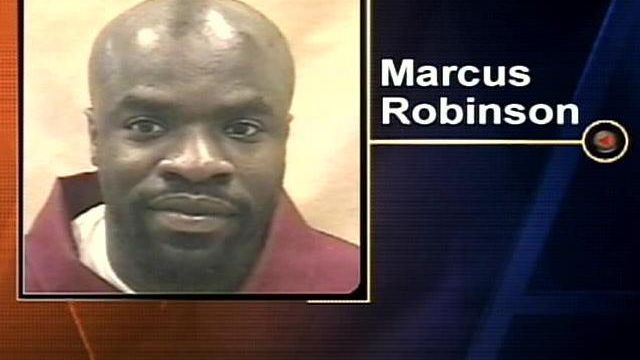Defense Lawyers Tell Easley Condemned Man Has Mental Defect
Shirley Burns wants the same thing for her son as she wants for the man who killed his half-brother: Life in prison rather than death.
Posted — UpdatedBut prosecutors want the state to execute Marcus Reymond Robinson, arguing that his shotgun slaying of a teenager 16 years ago was a senseless crime deserving nothing short of the death sentence he received.
Burns, defense lawyers and prosecutors were among the people who met Wednesday with Gov. Mike Easley as he considered whether to grant Robinson clemency. Robinson, 33, is scheduled to die by injection at 2 a.m. Jan. 26 at Central Prison in Raleigh.
Robinson's lawyers told Easley their client has a brain defect caused by beatings from his father that date back as much as 30 years. The damage hindered his ability to control his impulses, they argue, and they have asked Easley and the courts to stop his execution.
Prosecutors said they don't believe Robinson has a mental defect. They said they want the execution to go forward because the victim, 17-year-old Erik Tornblom of Fayetteville, did nothing to deserve a deadly shotgun blast to his head on June 21, 1991.
If he is executed, Burns said, she will be there to watch him die.
"I was there when he was born and I'm still having hope," said Burns, who said she also supports a life sentence for the man accused in Cumberland County of killing another of her sons in April.
Burns, 56, said her son had problems controlling himself as a child and went to juvenile court for hitting another child with a stick in retaliation.
Pam White, Tornblom's sister, also plans to attend the execution with her sister, Barbara.
"What he did to Erik, I think he deserves to die for it," White said. "Erik was our sunlight. He helped everybody, and that's why he was killed."
Tornblom was killed after he picked up Robinson and high school friend Roderick Williams at a convenience store, Cumberland County District Attorney Ed Grannis said. The pair forced Tornblom to drive to a field, where he was shot and robbed of his car and some cash.
"There is no other appropriate judgment," Grannis said after meeting with Easley. "You cannot express the loss that family suffered.
"This was a nice kid. This had nothing to do with drugs."
John Dickson prosecuted Robinson as Grannis' assistant and now is a District Court judge. He and Grannis also plan to attend the execution. Both of them know the Tornblom family and were emotional while talking about the case.
"It was basically an execution," Dickson said. "He was made to lie down on the ground."
Dickson rejected the defense argument that Robinson has a mental defect, saying the crime was the result only of "absolute meanness."
Robinson has had continuing discipline problems in prison, where death row inmates usually are considered well-behaved. His record shows he was locked up by himself for making threats, fighting, tampering with locks, possessing weapons and using profane language.
"Robinson's behavior has kept him locked up in various types of segregation almost constantly since 1995," said Keith Acree, spokesman for the state Department of Correction.
Defense lawyers have asked a court to stop the execution so Robinson's mental state can be examined using what they say is new scientific understanding of how his defect controls his behavior.
The lawyers also have asked Easley to declare a moratorium on capital punishment while the state's execution method—lethal injection—is studied, saying there is no guarantee that an inmate won't awaken and feel pain but not be able to express it because one drug paralyzes muscles. North Carolina courts have rejected similar arguments, but a botched Florida execution prompted a ban there, and a California federal judge stopped executions in his state.
Copyright 2024 by WRAL.com and the Associated Press. All rights reserved. This material may not be published, broadcast, rewritten or redistributed.





